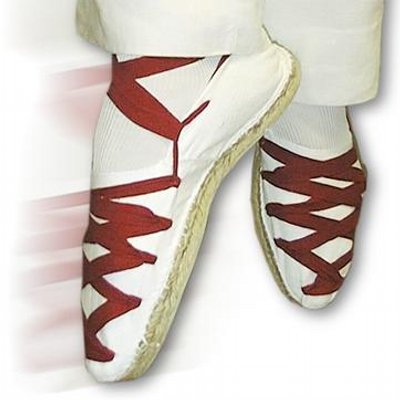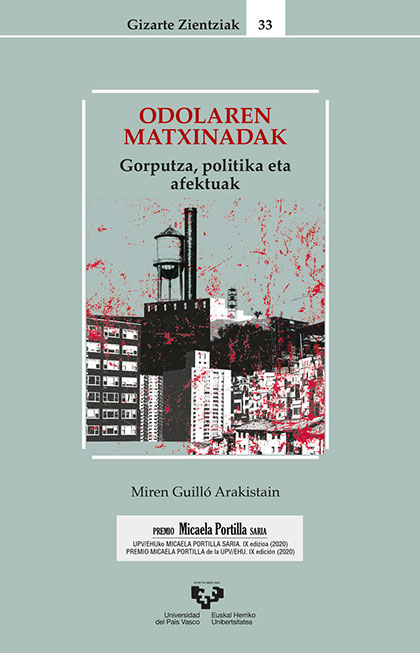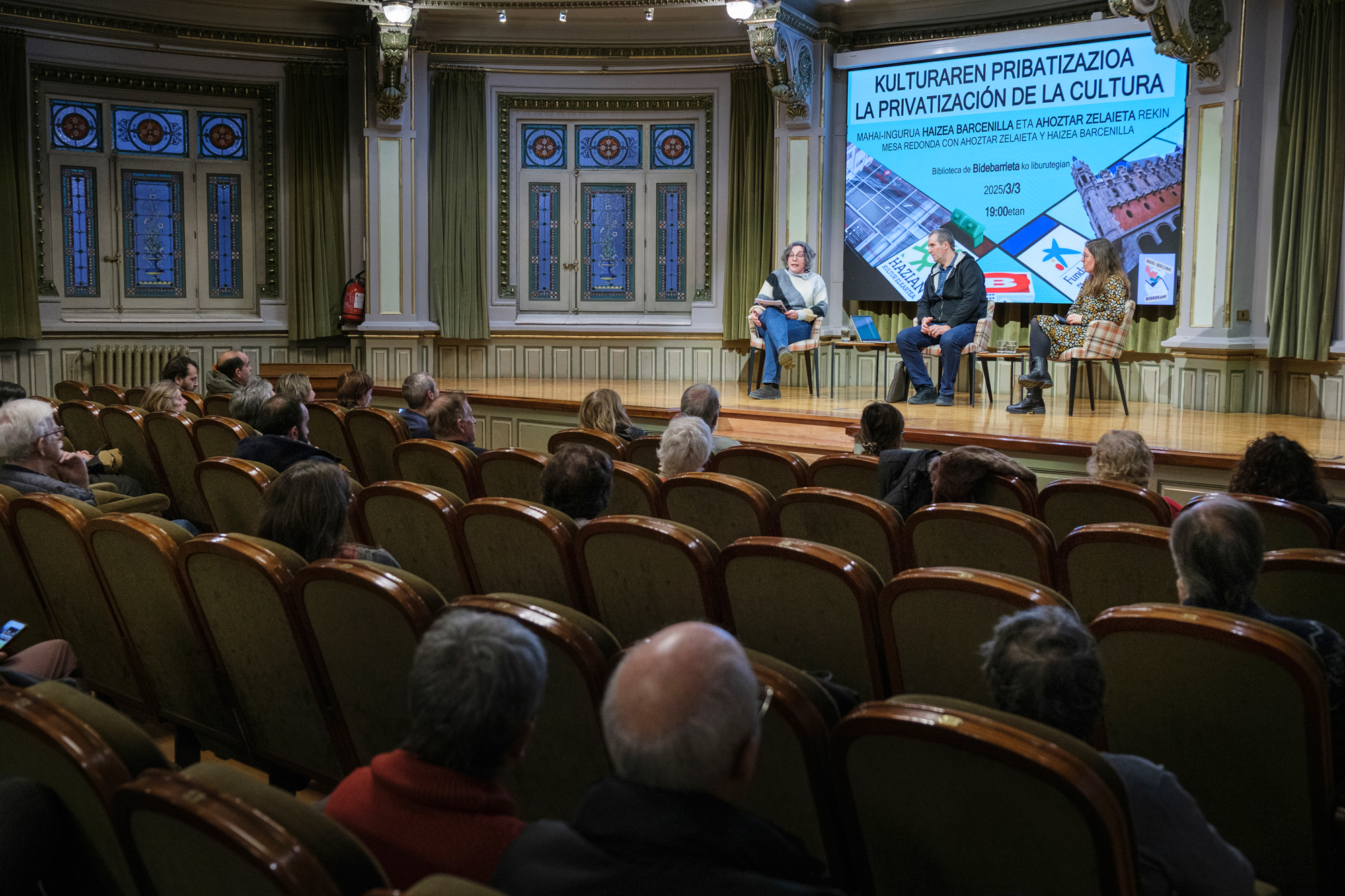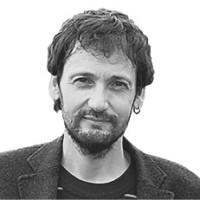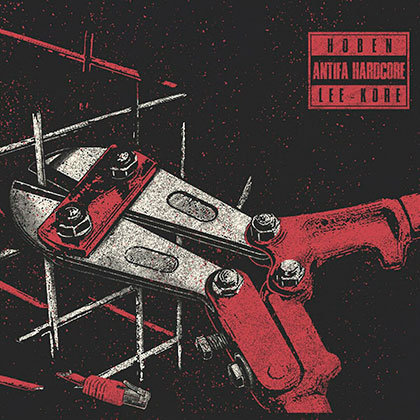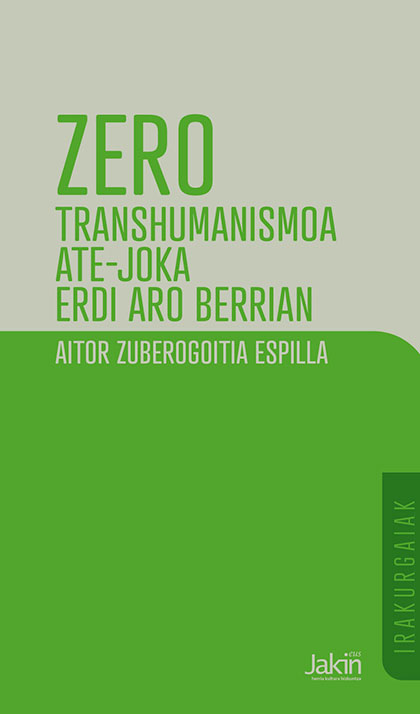The Sulatins welcome the manex to the kitchen
- This year I have approached the masks twice, the first to work, the second to enjoy, well, to enjoy in both. On January 15, I made my first exit to collect images of this year’s first face masks. They've been organized by young people from Maule-Lextarre in 2023, so I planted in the capital of Zuberoa. The second one I've done with the members of the local dance group, because I also want to show you the magic of the masks.

We went to Altzürüküra on 25 February, 8 cestones and a azpeitiarra (9 cestones in case the azpeitiarra is angry). It's the second time I go to the masks with the members of the group, the first exit we made in 2020 and, look, then they were the altzürükütarras giving the masks. We were at Game on February 29, 2020 and at two weeks we all know what happened. The world stopped, but listen, now I realize, at least that year we had the opportunity to enjoy the masks!
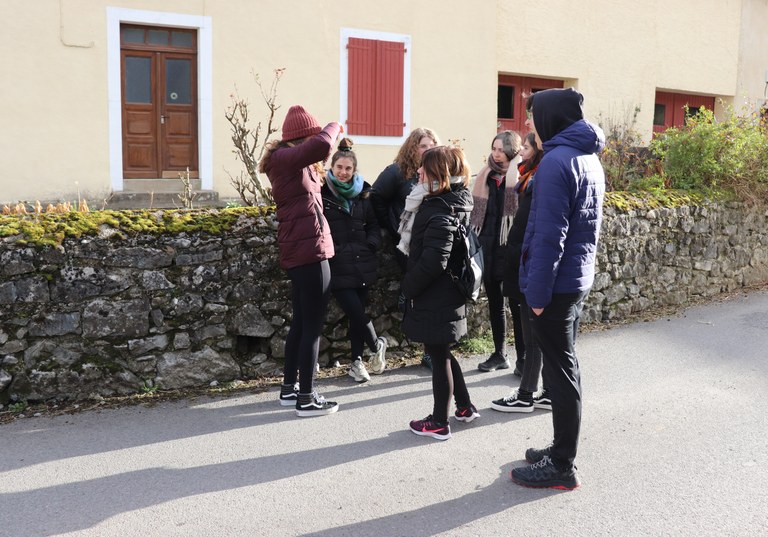
Well -- let's go back to this year. We approached the first barricade to enter 9:30. There were the neighbors and dancers of Altzürüküko, receiving the group of masks from Maule-Lextarre. We've been walking from one neighborhood to another. In the first two have appeared the altzürükütarrak, we and a couple of small Manex groups, but in the third there have been Sulatvian youth and numerous Manex quadrilles from neighbouring villages.
Mattin usually opens the doors of Altzürüküko
In the back of the pediment, the atmosphere is unbeatable, it starts to calm the sun and encourage people. I went to greet Mattin Eperre (Altzürükü, 1998), my official host of Altzürüküko in 2020, and after this year, let’s not say. I had contact with the masks then. It was zamaltzain, this time accurate, it made me weird to see Mattin without horses.

He told me in Baiona that he has just studied and just started the new business, but that every weekend he returns to his hometown. That your brother (Pitxu 2020) is in Bolivia, but enters in two weeks. That parents are also good, as always, that they need it here. After catching up, I asked him if any referees have to eat at home. In fact, this year they wanted to recover the habit that was once very common: to eat in the houses of the people who have visited the arizalaris.

See if I want to eat in your day. What shame has the face of hunger seen? Like I was asking... ha ha ha! But I told him clearly that yes, I have the food, but it would be a pleasure to live inside one of those meals of change in the masks. That he should serve in school food and that he will not be at home, but that he will alert his parents and warn them to go quiet. The white house on the hill, which is the parents' house that has the blue windows, the door to stick peacefully!
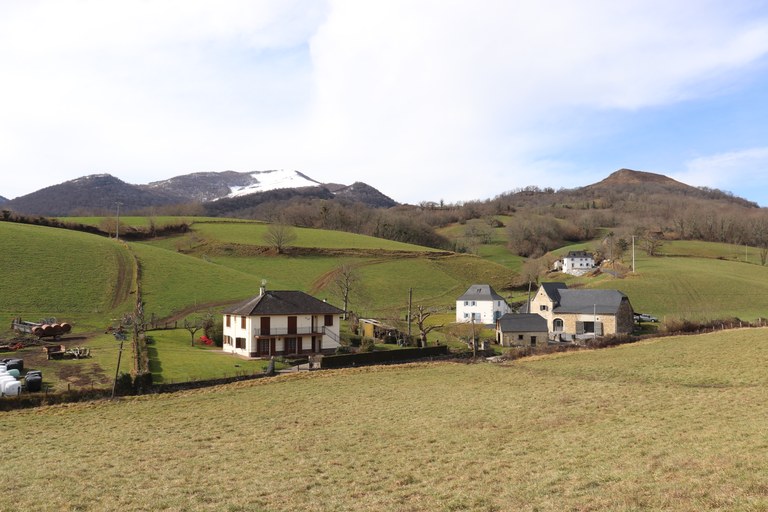
I thought I would walk quiet without a camera, but I lived this experience and how to stay in Dantzan without counting!
Eating at home
On more than one occasion I heard both the Sulatins and my co-workers that in their day the participants of the masks visited the houses of the people, and that there were formulas or social norms for each young person to decide their house. Researcher Kepa Fernández de Larrinoa has also gathered some details of this exchange of relationships. It was usual to go to the house of the young people who played the same role in the last masks of this town (he would go to the house of the last cantinera of the town that has visited the cantinera, and so most). The Lord was the house of contention. It has also been common to go home with family or friends. Thus, each young man, besides visiting some 12 villages in Zuberoa during the carnival season, visited many other kitchens, with all that this entails. The masks have been an impressive instrument of penetration and cohesion.
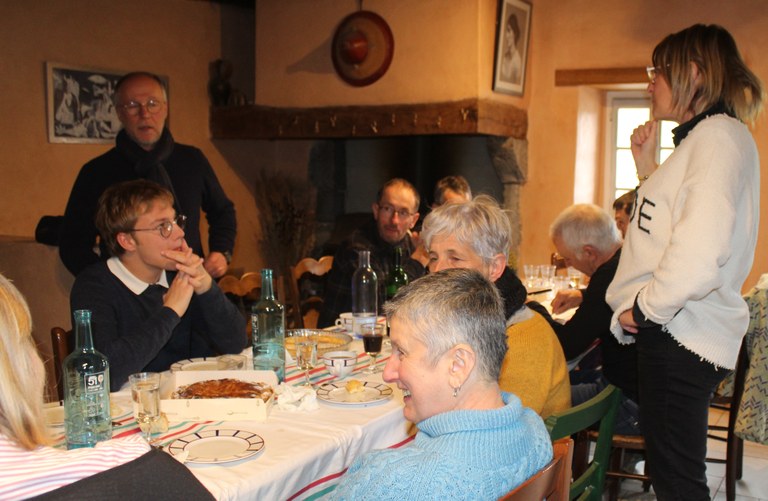
However, in recent years this practice has been losing out. Society is changing and it is clear that the doors of the current houses are not as open as those of yesteryear. In my environment I have seen that change and in Zuberoa, for the same thing! On the other hand, masked lunches have also been used to raise funds for ikastolas or schools, so that in recent years open popular meals have been organized, and the usual thing is that all together, in a festive atmosphere, are eaten.
However, this year the young people of Maule-Lextarre announced that they were going to give masks and that they wanted to follow the tradition of house meals. They think it's a good way to mix with the rest of the Sulatins. They contact the villagers who are going to visit and see how many houses are ready to receive the arizalaris. So some are eating at home and the rest in groups.
Round table Mendiburu
After finishing the masked barricades, I went to Mattin and pointed out to the man walking away. Go see him for that father. Beñat Eperre (Altzürükü, 1961) is on his way home, but I caught him in the race. We have come to Mendiburu with two words. Everyone is waiting for us! I've been laughed, you know that an irreverent guest of the last moment was going to appear somewhere. There are about 20 people in the dining room. Monique Uturriaga (Ozaze, 1965) has welcomed me home. Monique and Beñat are two marriages, parents of Mattin, who organize a family meal at home with the masks. Monique's brothers and nephews, some family friends -- I've tried to point out the relationship sketch of my fellow table, but I've left it as I was.
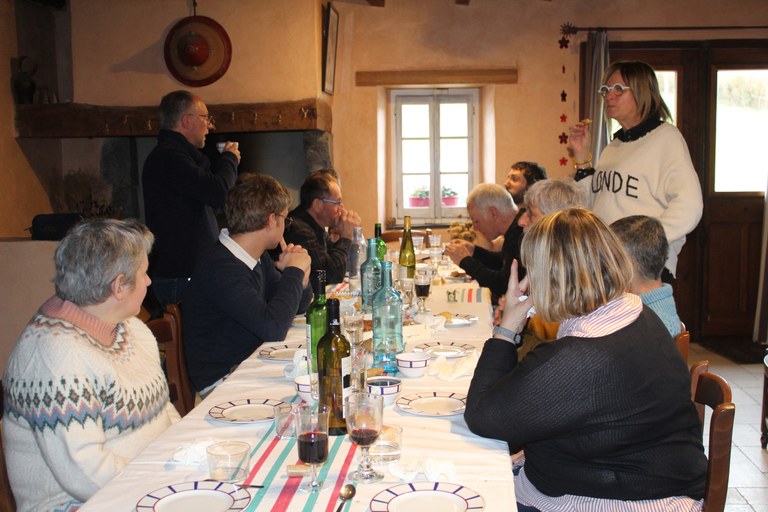
Beñat told me that they feel around them because some speak French. He warned me that I have no idea in French (sometimes Spanish works!). Let all around me feel Euskaldunes, OK! But what is going! Da Juan Martín de Kutxidazu bidea and at various times. Understanding Sulatins when they're among them is an exercise in language for a manex like me. And that, they've joined me, but -- at times to me! Saying with his head, as if he understood everything.
I think half of the funding has escaped from food interviews, but the things I've caught are really interesting. The truth is that at Mendiburu's table I felt at home. He reminded me of the return to the table of Ertxiñondo, our family’s farmhouse, but in its Sulatvian version. Most local issues, both current and historical. First they have devoted themselves to crops, herbs, damage caused by fires, the relay of young people, the future of cultivation... the child of Manex Street, without great contributions, but enjoying. We've also talked about the meaning of carnivals and the evolution of masks, the social norms of the festival, the Buhame-Herratu debate -- and about the Basque Country, the use of the Hitano -- about the creation of the ikastolas -- really enriching. Well, imagine what it has to be like for all the young people of the village to spend this way in the homes of neighbouring villages for three months. An immense formula of communication, relationship and cohesion.
Three manex in the President
Among the relatives and friends of Monique and Beñat I am not the only outsider, as in Mendiburu they have eaten two of the masks. Don Beñat Elkegarai (Garazi, 1974) and Ximun Uturralt (Donapaleu, 1988) buhamea (or blacksmith). Look, the two guests also manex!
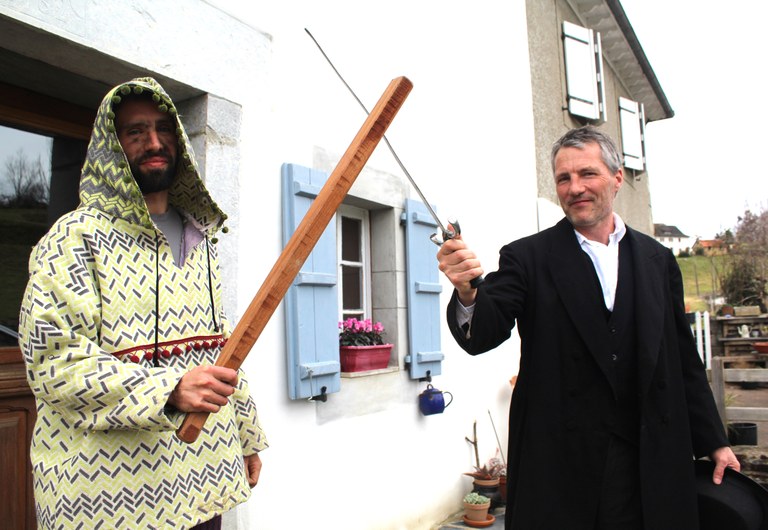
I have been told that they sit at the table (at the last and at the same level as the boss) and the other two manexas have been placed on both sides. On my side, though, they're Sulatins. Ximun has been working on Xibero's Botza station for about 10 years and says he's Mauleratua. In addition, he is his second face mask, in 2017 he worked with those of Péta. For his part, Beñat has spent many more years in Maule than Ximun. However, as their parents do not have them, he says it has been mauletarra for many years, but not Sulatino. He later approached Sulatvian culture. I asked him how many masks he has and he answered the first one. In 2007, Maule had the responsibility of organizing the masks, but that year he was a father, so he had other responsibilities. This year, Xan and Anita are on holiday with their children. Both are Küküllero and his father has taken on the role of Lord for several weekends to help young people team up.
That Altzürüküko mask of 1979...
The lord of the house is also given by the masquerade, says he worked as gatuzain in the masks of Altzürüküko in 1979. Beñat Eper was then 18 years old. He says his older brother and his friends were good dancers. But the fifth dancer was missing. Beñat prepared the dances of the masks in 3 months. 3 months, is it possible? Dancing and singing in the blood. After we got up from the table he did the demonstration. Antrexata teaches us how they learned and worked with the help of the chair.

Somewhere Beñat's skill seems to have been defended in the plaza with what he learned in 3 months and leaving a historical mark. In the workplace he talked about the 1979 masks and soon began experimenting with the texts his colleague Oier has stored on his computer. And bingo! Beñat belongs to the group of Altzürüküko masks that fascinated Antton Luku:
In the next winter the Alzürüküt gave an emergency mask and I say that when I saw what the dance impacted me to this day. I was young, I went there. But I was aware that we would not see it again, that something had produced that spectacle in that country and that these conditions disappeared before our eyes. The pioneers surprised me. [...] I see those pioneers like yesterday. They had an incredible joint while they were together, double fried, reanimating the speed in an adjustment or a cramp. But what surprised me the most was that, as the solitaire passed, it didn't do the same thing as body. They retained the role. Gatua gatu, zamaltzaina They were black and I always needed the pioneers detecting those flashes. (Antton Luku, Libertitzeaz, 2014)

From table to square
I love to eat and eat from time to time, I think like what is a week without eating. As I don't know how to say no to food, I'm all in. My friends always tell me, at least grateful in meals, I think in Mendiburu you will also think!
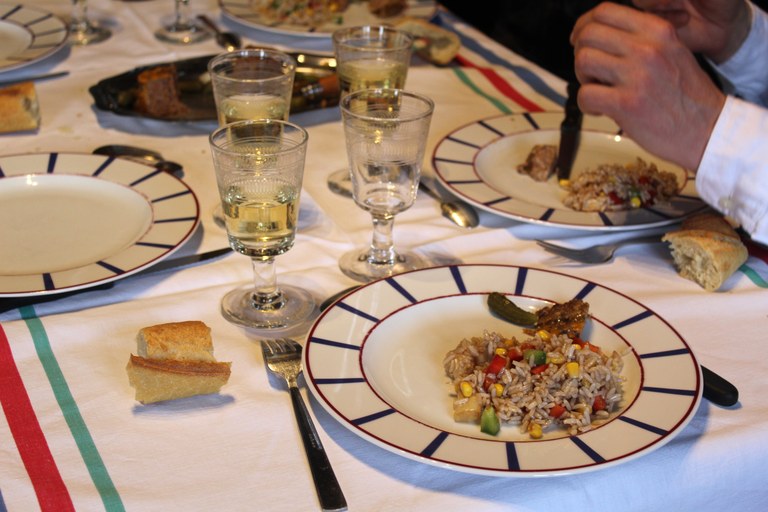
We are all in a good table atmosphere, but Beñat Elkegarai, in the role of the Lord, begins to look at the clock. That the afternoon session of the masks must start soon and start moving. Those in the house don’t care much about the hour, wait for them; moreover, if it is not the Lord who in the square never begins the masks. Therefore, they have started to take calm and drink. The master refuses with his head, “The lord has to dance!” Buhamea is also refined on paper, all the drink offered inside, never losing your smile.

He laughs by saying that he is seen in the afternoon session of the masks in Plaza Jauna sen, in 1995 he needed it, and he does not want it to be repeated this year. So, looking at his partner and “Sharing time, Ximun!”. I have stayed a little longer, how to leave the dessert and the next ones without ending!
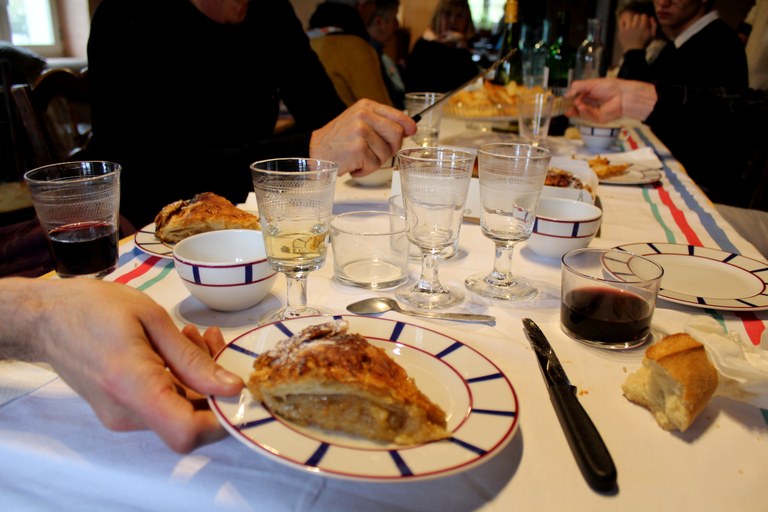
From home we've heard the first musical melodies, and then yes, thank you all, I've been fired and I've been running to the square. And there were my compatriots in one of the best places in the political-formal square, reserving for me the place and everything.
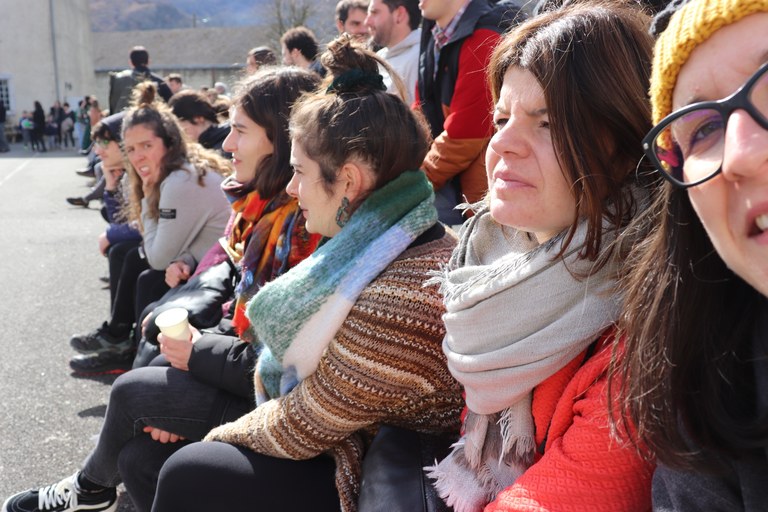
The honor of dancing in branle
I sat with my friends and I was also cautious to wake up! I've taken the scare of Christ and I've predicted some housing (the last one stole my camera). But no, oh, I haven't been invited to Branle! I got into the rope and the second guest gave me a hand. Aiba! It's Ihitz.
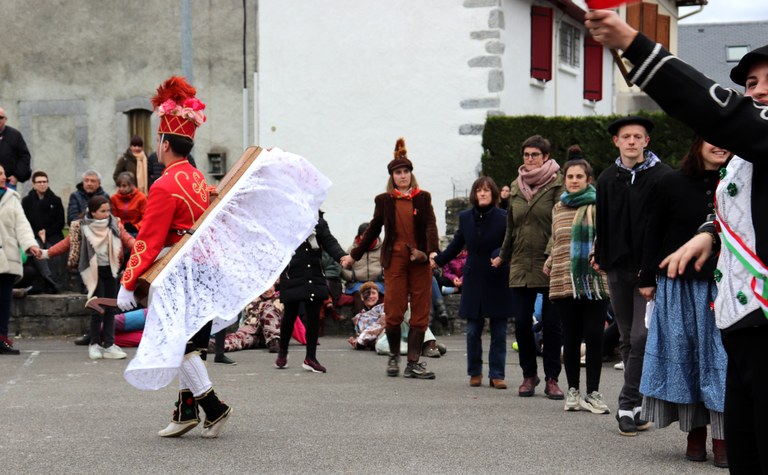
The branle can be considered a representation of the plaza of all the later symbolism of the masks, where the network of relations and key links of the festival is shown through the rope. Branlea is a chain dance, a soka-dantza, and the strings are a sign of social cohesion, as Juan Antonio de Urbeltz says, expression of unity and coexistence. Therefore, dancing on the rope with the zuberotarras is an honor for me; and from the hand of Ihitz, let us not say. He's my Sulatino friend, he's long opened my door to his house and taught me some things about Zuberoa, corners or parties and ritual keys.

That's the round day. I've had the privilege of going into the masks to the kitchen (literally). Manexa is welcomed at home and in rope by the Sulatins.
On March 7, the 150th anniversary of the birth of Maurice Ravel, the best Basque composer of all time. And in LA LUZ a tribute was paid to this composer, recalling the influence of the famous Bolero on the collective imagination.
By chance, Deutsche Grammophon has just released... [+]
Odolaren matxinadak. Gorputza, politika eta afektuak
Miren Guilló
EHU, 2024
Miren Guilló antropologoaren saiakera berria argitaratu du EHUk. Odolaren matxinada da izenburu... [+]
Lantegia espazioa, Esperantza liburutegia, Arte Ederren Museoko eta Euskal Museoko lanak, Urdaibaiko Guggenheim proiektua... Ugari dira Bilbon eta Bizkaian kulturaren ikuspegi utilitarista eta pribatizazioa agerian uzten dituzten adibideak. Alde Zaharreko haur eta gazteentzako... [+]
Haurtzaroaren amaiera eleberri distopikoa idatzi zuen Arthur Clarkek, 1953. urtean: jolasteari utzi dion gizarte baten deskribapena. Eta ez al da bereziki haurtzaroa jolasteko garaia? Jolasteko, harritzeko, ikusmiratzeko eta galdera biziak egiteko unea. Ulertzeko tartea zabalik... [+]
The lights of the theater are on. Discreetly, I’m walking on the steps: the school performance is about to begin. The young men run to their seats, full of life and joy. The retreat has the taste of liberation, but this feeling of freedom speaks Spanish or French. This... [+]
Astelehen honetan hasita, astebetez, Jon Miranderen obra izango dute aztergai: besteren artean, Mirande nor zen argitzeaz eta errepasatzeaz gain, bere figurarekin zer egin hausnartuko dute, polemikoak baitira bere hainbat adierazpen eta testu.
Olatz Salvador
Noiz: martxoaren 15ean.
Non: Deustuko jaietan.
------------------------------------------------
Martxoak beti du deustuarrontzat kolore berezia; urtero ospatzen ditugu jaiak, San Jose egunaren bueltan. Bi asteburu bete festa, eta urtetik urtera Deustuko... [+]
Antifa hardcore
Lee-Kore + Hoben
Autoekoizpena
---------------------------------------------------------
Tamalez ez da ohikoa Arrasaten hardcore kontzertuak egitea, bestelako musika eszenak nagusitzen direlako. Hala bada, joan den larunbatean herriko gazte batzuen... [+]
Zero. Transhumanismoa ate-joka erdi aro berrian
Aitor Zuberogoitia
Jakin, 2024
-----------------------------------------------------------
Hasieran saiakera filosofiko-soziologikoa espero nuen, baina ez da hori liburu honetan aurkitu dudan bakarra. Izan ere, biografia... [+]



